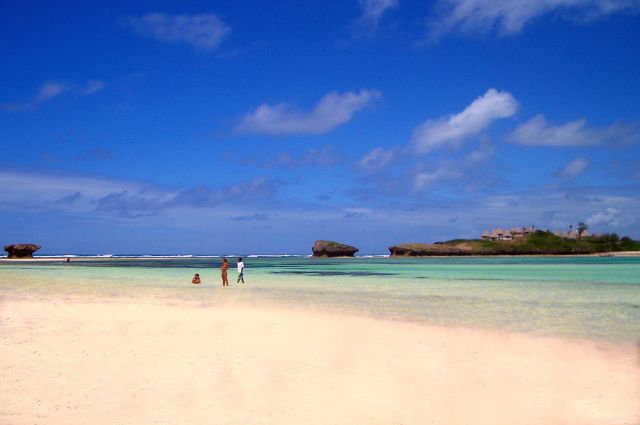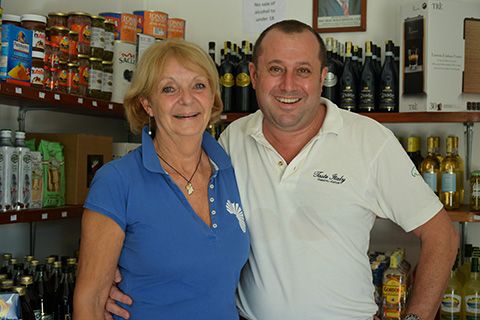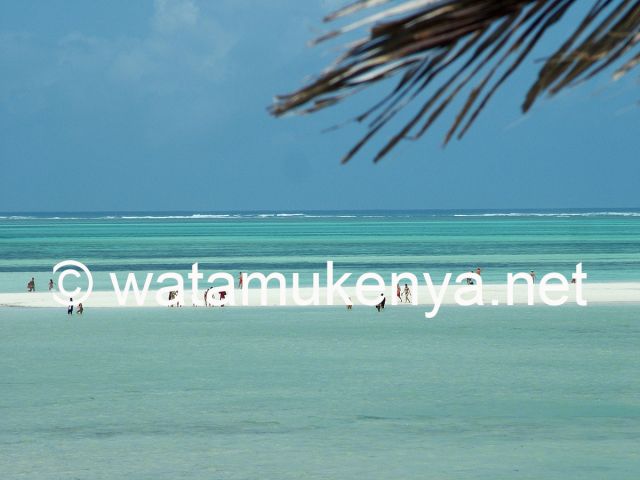
LIFE IN KENYA
21-06-2021 di redazione

How much does it really cost to live in Malindi and Watamu without working?
How much can a pensioner or someone who has an income live on while savouring the dolce far niente?
Considering the overwhelming return of the desire to "change life" and the growing resentment of Italy, we at malindikenya.net have updated the studies done at the time and the experiences "in the field", and compiled five categories of "typical" compatriots, residents or semi-residents. These costs are net of some advisable precautions, such as health insurance that covers transport to a private hospital and at least 10 thousand euros in expenses for initial treatment (average price around 500 euros per year).
Here are the results, updated to March 2021:
1. AFRICANISED
Flat in the local poor districts (Ngala 4, Muyeye or Mtangani in Malindi, Timboni in Watamu) from 60/70 euro per month (room, living room, bathroom and kitchen), electricity bill about 10 euro. Diet based on polenta and vegetables, beans and chapati, less noble parts of the meat, eggs and fruit. Expenditure is strictly at the market or local shops, no imported products and Italian food. No television, or at least no decoder or satellite dish, charcoal cookers and boda-boda travel. To drink, boiled tap water and the occasional "soda". Partners or neighbours who occasionally help with washing and cleaning. Simple mobile phone or smartphone, paying close attention to the cheapest rates for calling with whatsapp.
MONTHLY COST: 350 euro
2. INTEGRATED MZUNGU
Flat in the neighborhoods of the small local bourgeoisie (Majengo, Central, Shella in Malindi, Kilifi Town, Mtwapa) 120/150 euro per month, electricity bill 15 euro, water 5 euro.
Food in local restaurants (average price 3 euro per meal) or rice, vegetables, meat and non-noble fish (taffi, kumbu), fruit. Shopping at the market or local shops, no imported products. Gas cooker. Television with local channels, travel also by tuk-tuk. Drinks: cheap mineral water, a soda and a beer now and then. Houseboy occasionally for washing and cleaning. Smartphone with attention to cheap internet rates.
MONTHLY COST 650 euro
3. EUROPEAN SAVER
Flat or portion of a small villa in a residence (200 to 300 euros per month, with bills of around 50 euros), spending on food, even imported food (occasionally cold cuts, cheese), familiar vegetables: aubergines, broccoli, cauliflower, spinach. Shopping in Indian supermarkets and in small fruit and vegetable shops where they speak Italian. Dinners in decent African restaurants and once a week an Italian pizza. Gas cooker. Television with decoder to take Rai Italia as well. Movements by tuk-tuk. To drink, sometimes South African or Chilean wine or the offers of Italian importers. Houseboy, smartphone with fixed rate.
MONTHLY COST: 900 euros
4. COMFORTABLE ITALIAN
Independent villa with swimming pool for rent (500/600 euro per month, electricity 200 euro, water 50), varied diet (fish, meat, shellfish, Italian products, wine), television with Rai Italia subscription, internet wi-fi, dinners in good Italian restaurants, days on organised beaches such as Rosada or Malaika Beach in Malindi and Paparemo in Watamu. Purchase of a car, preferably a Japanese one, for transfers. Houseboy and security service.
MONTHLY COST: 1600 euro
5. NABBO
Villa in tourist residential area (Casuarina in Malindi, Ocean Breeze, centre in Watamu), purchased, with swimming pool. Diet of fish, shellfish, fillet of meat, non-native vegetables (artichokes, asparagus, fennel, etc.), fish, cold cuts, imported Italian products, Italian wines. Shopping in supermarkets, preferably western ones, dinners in good restaurants two or three times a week, dinners at home with guests and parties. Almost daily days at the beach in bathing establishments and evenings in clubs or at the casino. Houseboy, gardener, askari. Television with "premium" subscription, wi-fi internet. Own off-road vehicle, safari when you feel like it.
MONTHLY COST: 2800 euros
THE COSTS ARE NET OF MEDICINES, ORDINARY HEALTH CARE, EXPENSIVE VICES AND POSSIBLE LOCAL PARTNER.
IN THE MONTHLY BUDGET YOU HAVE TO CALCULATE ALSO A TRIP TO ITALY (OR ABROAD, AT LEAST IN ETHIOPIA, AND WITH A MINIMUM DURATION OF 5 DAYS) TO RENEW THE TOURIST VISA.
OTHERWISE THE RESIDENT PERMIT COSTS 1000 EURO PER YEAR WITH A 3 YEARS ADVANCE, PROVING THE INCOME OF A PENSION, OR A BANK GUARANTEE OF ABOUT 20 THOUSAND EURO PER YEAR.
Translated with www.DeepL.com/Translator (free version)

AFRICAN WORDS
di redazione

We have selected ten sentences that express a feeling dedicated to Africa, understood more as a spiritual and moral, historical and social entity than as a geographical reality. The selected words are all taken from published...
FILM
di redazione

The incredible story of Robin Cavendish told in this film released in 2017, whose original title is "Breathe".
It is a Hollywood production starring the young Andrew Garfield (Spider Man, The social network) who plays the protagonist of a true...
NEWS
di redazione

Tourism in Watamu is by now a phenomenon in its own right from every possible vicissitude of Kenya.
This is a fact by now well established and the good news is that
PERSONS
di Leni Frau

Africa in destiny since childhood.
Kenya lived as an enchantment, a garden of experiences, a promise.

Whoever visits Watamu, lives or spends the holidays here, no matter what the most pleasant smiles to encounter in the Italian community and as if it were not enough to offer food and wine products of our Peninsula, both English.
TOURISM
di redazione

With a high tourist season sealed by hundreds of Italian presences, especially in the most sought-after resorts on the Kenyan coast, from Watamu to Diani, from Kilifi to...
PERSONS
di Freddie del Curatolo

In Watamu there are those who know her as "Mama Zawadi" and who as the Lady of the Woods of the Sea.
Here they are called "driftwood", carried logs, honed and sculpted by the current of the Indian Ocean.
MAL D'AFRIQUE
di Leon Mufasa

My mal d'Afrique is dedicated to those who have never been in Africa.